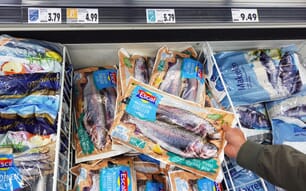In a scheme that contradicts the protected status of Chilean sea lions, the government has set plans to systematically cull and capture sea lions in Chilean waters, arguing that their feeding habits are partly responsible for the severe drop in fish stocks, reports The Santiago Times.
Senator of Chile’s Lakes Region, Camilo Escalona, claimed that sea lion overpopulation is responsible for losses of US$140 million in the fishing sector every year.
“We have been in contact with leaders of fisheries from different parts of the region, who all expressed concerns regarding this ecological imbalance,” Escalona told local press. "Every day that passes, the damage to productive sectors from sea lion overpopulation is increasing.”
The initiative will allow the hunting of sea lions with nets and firearms, using their flesh for dog food and selling their bones and reproductive organs to Asia for medicinal purposes. Sea lions that are caught live will be sold to zoos, animal shows, and circuses.
Congresswoman Carolina Goic told the SOS Sea Lion pressure group that the initiative will not benefit the country economically. "We are all responsible for the care of nature, and in the case of sea lions this is indiscriminate killing,” she said.
“The scheme has no scientific backing or technical rationality,” said a spokesperson for SOS Sea Lion. “It is just an attempt to divert public attention from the actions of over-sized industrial fishing fleets.”
Chile’s National Fisheries Society has consistently proposed unsustainable fishing quotas over the past two decades, leading to a 90 percent drop in mackerel stocks in Chilean waters.
Peter Arrey, director of the National Committee for the Protection of Fauna and Flora, argued that educational measures need to be implemented in the Chilean fishing industry.
"It is very important to incorporate a specific educational program geared to the fisheries sector,” Mr Arrey told local press. “They see this species, not natural, but as a competition problem."
Chile Blames Sea Lions for Drop in Fish Stocks
CHILE - The Chilean government last week blamed Peruvian fishing vessels for the dramatic decline in mackerel stocks off Chile's coast. Now theyre pointing an accusatory finger toward Chiles sea lion populations.

